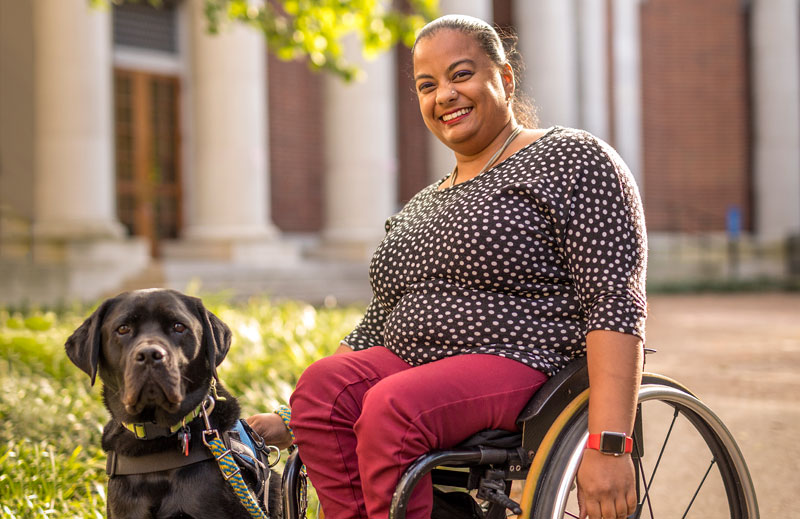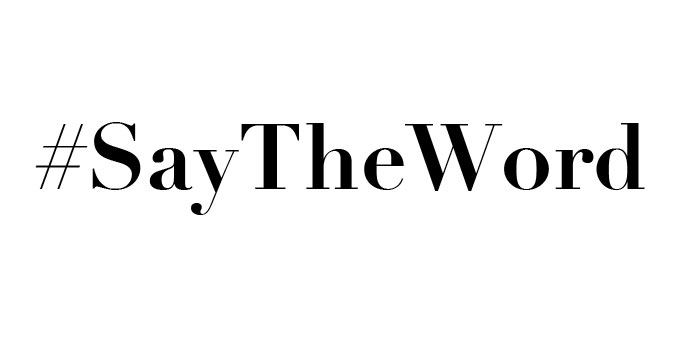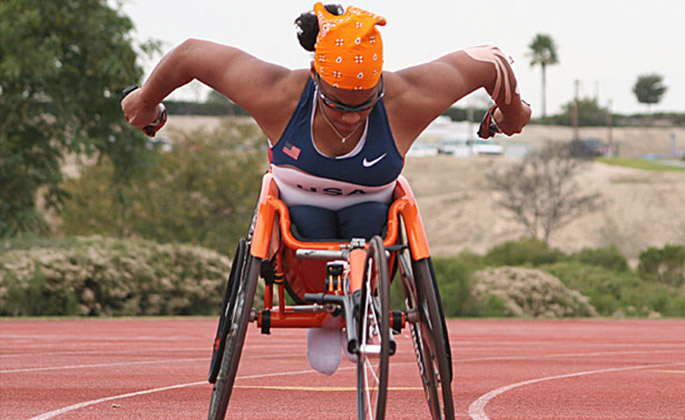
Erasing the term disability from the collective vocabulary is misguided and has harmful sociocultural implications, according to a new article by leading scholars and rehabilitation psychologists in the field of disability identity.
The article is part of a special issue of the journal Rehabilitation Psychology that explores disability and social justice in rehabilitation research.

Disabled people are reclaiming our identities, our community, and our pride. We will no longer accept euphemisms that fracture our sense of unity as a culture.
Anjali Forber-Pratt, assistant professor at Vanderbilt University’s Peabody College of education and human development, is one of six authors on the paper, which outlines the rationale behind and importance of the broader #SaytheWord movement, a social media call to embrace disability identity. Notably, all six authors identify as disabled female scholars and psychologists.
“Decisions about language have important sociocultural meanings in the disability community, and erasure of the term ‘disability’ can evoke fear and frustration among those who claim a disabled identity and align with disability culture,” the authors say. “Disabled people are reclaiming our identities, our community, and our pride. We will no longer accept euphemisms that fracture our sense of unity as a culture.”
Terms that are used or substituted for disability include “differently-abled,” “physically challenged,” “special needs” or “handi-capable.”
“Disability is not a dirty word. These words actually diminish and erase disability from the picture,” Forber-Pratt says. “Having a disability is not something to be ashamed of, and such euphemisms deny the existence of disability and reinforce the stigma surrounding disability rather than embracing it as a valued aspect of diversity.”
In the article, the authors reflect on the role of disability within the field of psychology, including the underrepresentation of disabled psychologists and trainees with disabilities and the lack of mentorship opportunities available in the field.
 “The field of psychology has a rich tradition of appreciation of cultural diversity and individual difference,” Forber-Pratt says. “Yet, disability has largely been left out of these efforts. The disability movement is moving toward the status of a diverse cultural group with a social justice agenda parallel to those of other marginalized communities.”
“The field of psychology has a rich tradition of appreciation of cultural diversity and individual difference,” Forber-Pratt says. “Yet, disability has largely been left out of these efforts. The disability movement is moving toward the status of a diverse cultural group with a social justice agenda parallel to those of other marginalized communities.”
The authors posit that psychology must play a stronger role in advancing the human rights of people with disabilities. Nondisabled psychologists can be disability allies by supporting efforts to normalize the word disability by recognizing and speaking out against offensive language and efforts to replace disability with euphemisms. Further, psychologists should honor patient language preferences in culturally appropriate ways.
Additional Authors
Erin E. Andrews, University of Texas at Austin; Rochelle Balter , The City University of New York; Emily M. Lund, Mississippi State University; Linda R. Mona, VA Long Beach Healthcare System, Long Beach, California; and Carrie R. Pilarski, University of Michigan.
Read the Report
Download a PDF of #SaytheWord: A disability Culture Commentary on the Erasure of “Disability”
More about Anjali Forber-Pratt

Anjali Forber-Pratt is an assistant professor in the Department of Human and Organizational Development with a secondary appointment in the Department of Special Education at Vanderbilt’s Peabody College.
She is amember of the prestigious Vanderbilt Kennedy Center for Research on Human Development. She is an elite wheelchair racer who earned two bronze medals after participating in the 2008 Paralympic Games in Beijing, China, and the 2012 Paralympic Games in London.
She was honored by Diverse: Issues in Higher Education as a 2018 Emerging Scholar.
For interviews or to learn more, call 615-322-NEWS.